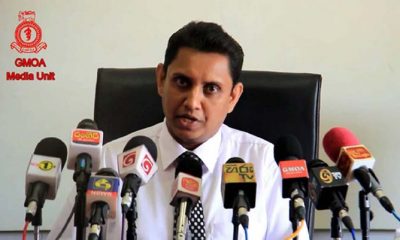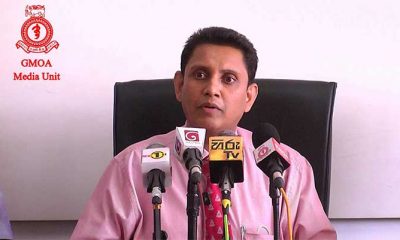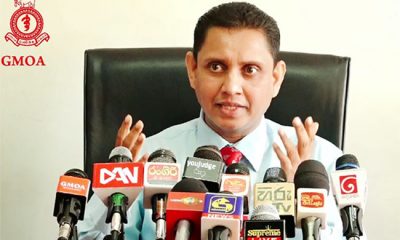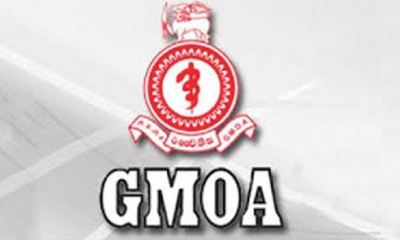News
GMOA blames rampant corruption for health sector woes
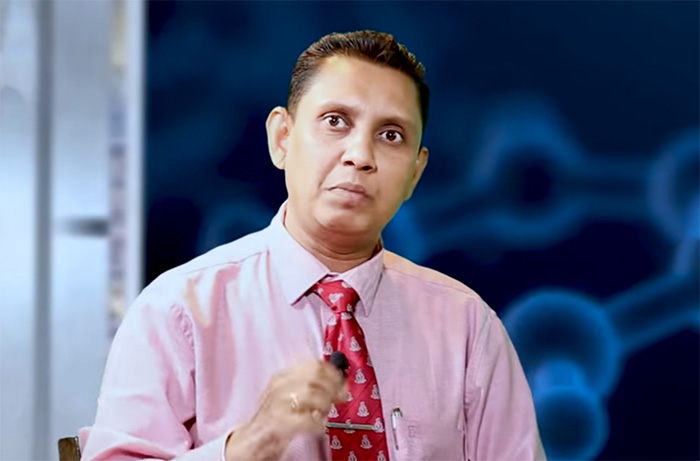
… asks Minister to show sincerity by sacking culprits
By Rathindra Kuruwita
One of the main reasons for the sorry state of affairs in the health sector is corruption and the Health Minister must show his sincerity by sacking senior officials who are facing serious allegations, Dr. Haritha Aluthge, Secretary of the Government Medical Officers Association (GMOA), told The Island.
Dr. Aluthge added that health officials had ignored the repeated warnings of professional organisations, and there were allegations that they subjugated the interests of the public to personal gain.
“When a drug is found to have serious side-effects, the Health Ministry suspends its use. Health sector professionals are struggling to cope with drug and staff shortages and fears over the quality of drugs. I think members of the general public must come forth and pressure officials to address these serious issues,” he said.
About a year ago, the health sector revealed that 120 types of drugs were out of stock. Dr. Aluthge said. This week, the Health Minister himself admitted that 190 drugs are in short supply.
“The Health Ministry also employs many officials accused of serious corruption. Allegations against the National Medicines Regulatory Authority are serious. The Minister must show his good intentions by sacking those who face serious charges. If not, the public trust in the healthcare system will collapse,” he said.
Chairman of the Government Radiological Technologists Association (GRTA) Chanaka Dharmawickrama said linear accelerator, a machine that aims radiation at cancer cells with pinpoint accuracy, sparing nearby healthy tissue, was the most advanced technology the cancer hospital had and the machine that was used to treat children was out of order.
“We have five such machines at Apeksha Hospital. One has broken down, and this is the machine we use to treat children. We used to treat 10-15 children daily using this machine. Now, we cannot treat anyone.”
Using a linear accelerator in the private sector would cost anything between 500,000 to 1,500,000 rupees, depending on the type of cancer and complications, he said.
“There is also a problem with the PET scan. We need a chemical to use in FDG PET scans that help radiologists distinguish between healthy tissue and diseased tissue so that cancer can be accurately diagnosed, correctly staged, and appropriately treated. This chemical is no longer available. We have not been doing tests from 26 May 2023. A tender was called and a new supplier was selected, but he has not supplied the chemical,” he said.
Dharmawickrama said that the PET scanner must always be available because there is a long list of people waiting to be tested. The PET scan was bought with public donations, and the state has only to maintain it.
“The hospital administration knows when it should call for tenders for various requirements. We all know how long it takes,” Dharmawickrama said.
The CT scanner at the accident ward in the National Hospital, too, has broken down, Dharmawickrama said. This is an old machine, and there is a debate on whether this should be replaced, he said. However, given that the accident ward needs a CT scanner, the machine should be brought online soon, he said.
One of the three machines in the Cardiac catheterisation unit of the National Hospital of Sri Lanka (NHSL), too, had broken down a few months ago, Dharmawickrama said, adding that the NHSL had an eight-month waiting list for tests related to heart issues, he said.
“The other hospitals, too, are facing problems. One of the two machines used for coronary angiograms in the Kandy General Hospital has broken down. The hospital also has two linear accelerator machines to treat cancer patients. However, due to a problem with the cooling system, these machines have not been used since November 2022,” he said.
The CT machine at the Badulla Hospital has also broken down, and patients are being taken to Nuwara Eliya and Monaragala hospitals at great cost, Dharmawickrama said. The CT machine was relatively new and still under warranty, but the hospital had not signed a post service agreement with the supplier.
“Once the service agreement with the supplier is signed, the company will replace the x-ray tube in the machine. We probably have spent more than 4.9 million to transport patients. Before that, we spent 2.5 million a week to get tests done through the private sector when both CT scanners at Karapitiya Hospital broke down. Now, one machine works,” he said.
Commenting on the problems with machinery, Dr. Aluthge said that there was rampant corruption in the health sector. Therefore, it was not possible to brush aside allegations that health administrators were deliberately undermining the state healthcare system for the benefit of the private sector.
“Most of the health administrators have been in the system for decades, and they like to maintain the system as it is. If a test is not available in the state sector and if it is a life-or-death situation, people will even sell their houses and get tests done in the private sector. We need to overhaul the entire system,” Dr. Aluthge said.
News
AKD warns of far reaching economic consequences of Middle East war
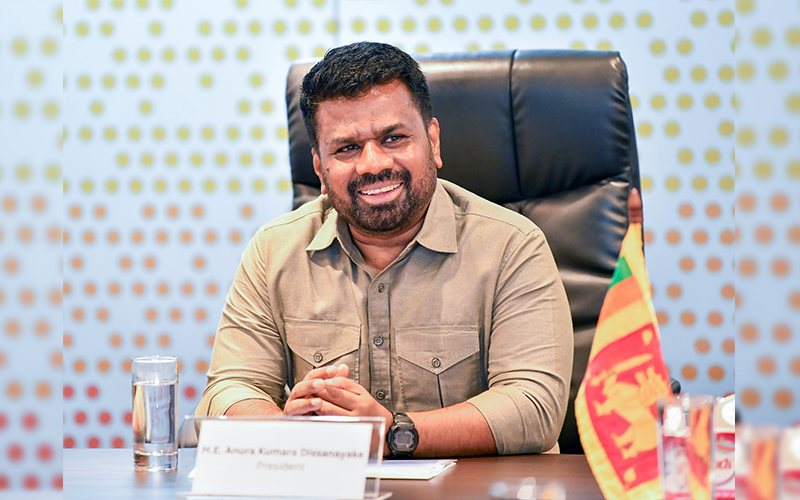
President Anura Kumara Dissanayake yesterday called for an immediate and peaceful resolution of the escalating Middle East conflict, warning that the crisis could have far-reaching repercussions on the global economy, including Sri Lanka.
Addressing Parliament, the President stressed that no military conflict benefited humanity, particularly at a time when destructive military technologies were rapidly advancing.
“Any military conflict does not create a favourable situation for any group of people,” he said, urging all parties to make urgent commitments towards peace. “As Sri Lanka, our position is that all parties involved in this war must, as soon as possible, take steps toward a peaceful world.”
He cautioned that Sri Lanka could not remain insulated from the fallout from the conflict, noting that disruptions to global oil and gas supplies, threats to migrant workers in the Middle East, and potential shocks to tourism, remittances, shipping and aviation were real concerns.
A national programme was being formulated to mitigate the impact, he said, adding that its success would hinge on broader international efforts to restore stability, the President said.
Acknowledging public anxiety shaped by past economic hardships, President Dissanayake said social stability could not be ensured through rhetoric alone but required tangible guarantees that citizens would not face another crisis.
While noting that the government had successfully navigated multiple challenges since assuming office, he described the Middle East situation as distinct due to the uncertainty surrounding its duration and outcome.
The government, he said, was closely monitoring developments. The Central Bank had conducted a review with a report on the likely economic impact expected shortly. The Ministry of Finance is also preparing an assessment of the potential effects on public life, alongside measures to ensure the uninterrupted provision of essential services locally and for Sri Lankans overseas.
“The primary responsibility for finding a path out of the crisis rests with the Government,” he said, calling on Parliament and the public to collectively confront the challenge under a unified national plan.
Providing a detailed account of the country’s energy reserves, the President said storage capacity rather than supply remained the key constraint. Excluding the Indian Oil Corporation tanks in Trincomalee, total storage capacity at Kolonnawa and Muthurajawela stands at approximately 150,000 metric tons.
Diesel stocks were currently sufficient for 33 days, with refining contributing around 1,800 metric tons daily. Petrol reserves will last 27 days, with a 35,000 metric ton shipment due on March 7 or 8 expected to extend availability to around 40 days.
Aviation fuel stocks are adequate for 49 days, supported by both daily refining and imports. Scheduled shipments include vessels from RM Parks on March 14, Sinopec on March 17, IOC on March 21 and the Ceylon Petroleum Corporation on March 28.
Crude oil supplies were sufficient to operate the refinery for 26 days, with an additional shipment expected to extend operations by a further 18 days, the President said.
“Because of this, there is no crisis regarding oil,” the President assured Parliament.
News
Pope invited to visit Sri Lanka
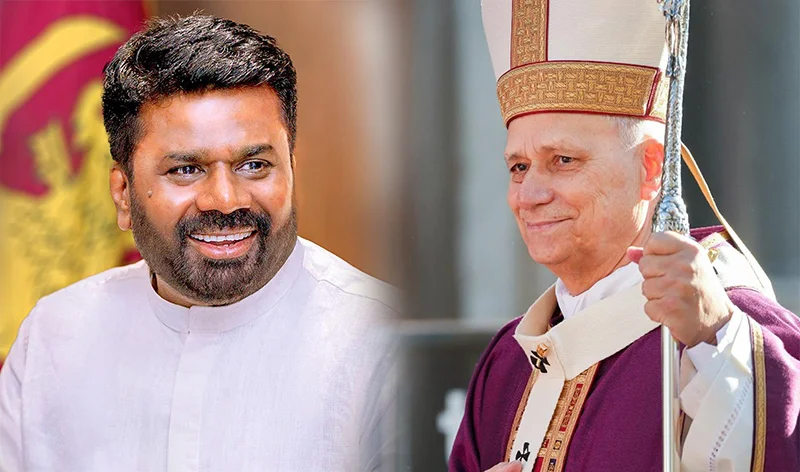
President Anura Kumara Dissanayake has invited His Holiness Pope Leo XIV to visit Sri Lanka.
The official invitation was handed over by Minister Bimal Ratnayaka to the Vatican’s Under Secretary for Relations with the States, at the Vatican, yesterday, during the Minister’s official visit to Italy, the President’s Media Division said.
News
New Tourism Act to strengthen legal action against visa violators
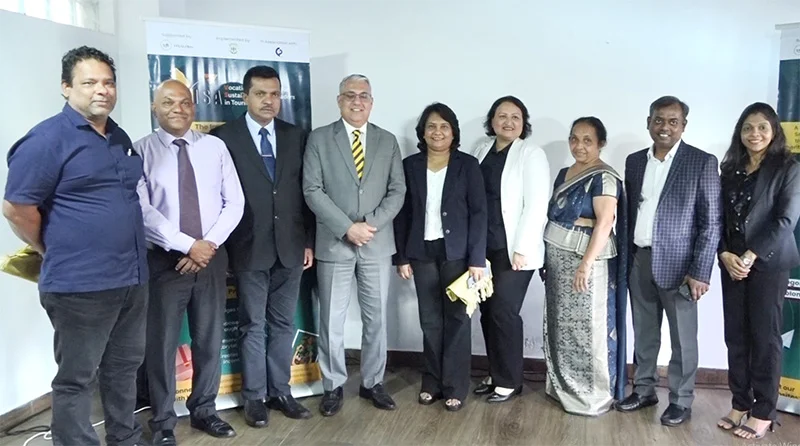
The government is in the process of drafting a new Tourism Act to address legal loopholes that currently prevent the prosecution of foreign nationals who engage in unauthorised activities while on tourist visas. Speaking at a certificate awarding ceremony for the Vocational Initiative for Sustainable Ambassadors in Tourism (VISA) project at the Royal Kandyan Hotel, Suranjith Wavita, a member of the Presidential Task Force for Tourism Development, stated that the current Tourism Act No. 38 of 2005 was flawed as it does not prescribe specific punishments, beyond deportation, for such offenders.
Wavita highlighted that a significant number of foreigners, including Chinese nationals, had been deported over the past three months for working as illegal tour guides and engaging in various trading activities. He explained that due to a shortage of Chinese-speaking local guides, travel agents often brought in “Tour Leaders” from abroad on tourist visas, which was a serious violation. The proposed new legislation aimed to empower the Tourist Police Division to arrest and produce such violators, ensuring stricter enforcement than mere deportation.
The new Act is being formulated by a committee of experts, based on various proposals and ideas to make it mandatory for anyone involved in the tourism industry to be registered and properly trained. To facilitate this, the government has already lowered the basic qualifications required for registration, allowing more locals to enter the profession legally and prevent the negative impact of unauthorised operators on the industry’s future.
Discussing the industry’s growth, Wavita noted that Sri Lanka was now aiming for an annual target of three million foreign tourists. He specifically mentioned the success of the 311-km “Pekoe Trail” in the central highlands, which attracts around 500 tourists daily and helps channel tourism income into plantation-based communities.
He also emphasised the importance of environmental protection, noting that since 25% of Sri Lanka’s flora is endemic, some foreigners enter the country with the intention of “biopiracy,” making the role of trained local guides crucial in safeguarding natural resources.
The VISA training project was implemented by the National Cleaner Production Centre (NCPC) and ASSIST, with the support of VFS Global. The event saw the participation of high-ranking officials, including Manpreet Singh Aurora (Senior General Manager, VFS Global), H.C.P. Jayaweera (Director General of National Botanical Gardens), and Samantha Kumarasena (CEO, NCPC).
Wavita concluded by praising the increasing participation of women in the tourism sector, describing it as a vital contribution to both the industry’s progress and the national economy.
By S.K. Samaranayake
-

 Opinion5 days ago
Opinion5 days agoJamming and re-setting the world: What is the role of Donald Trump?
-

 Features5 days ago
Features5 days agoAn innocent bystander or a passive onlooker?
-

 Features2 days ago
Features2 days agoBrilliant Navy officer no more
-

 Features6 days ago
Features6 days agoRatmalana Airport: The Truth, The Whole Truth, And Nothing But The Truth
-

 Opinion2 days ago
Opinion2 days agoSri Lanka – world’s worst facilities for cricket fans
-

 Business6 days ago
Business6 days agoIRCSL transforms Sri Lanka’s insurance industry with first-ever Centralized Insurance Data Repository
-

 Business5 days ago
Business5 days agoAn efficacious strategy to boost exports of Sri Lanka in medium term
-

 Features3 days ago
Features3 days agoOverseas visits to drum up foreign assistance for Sri Lanka


